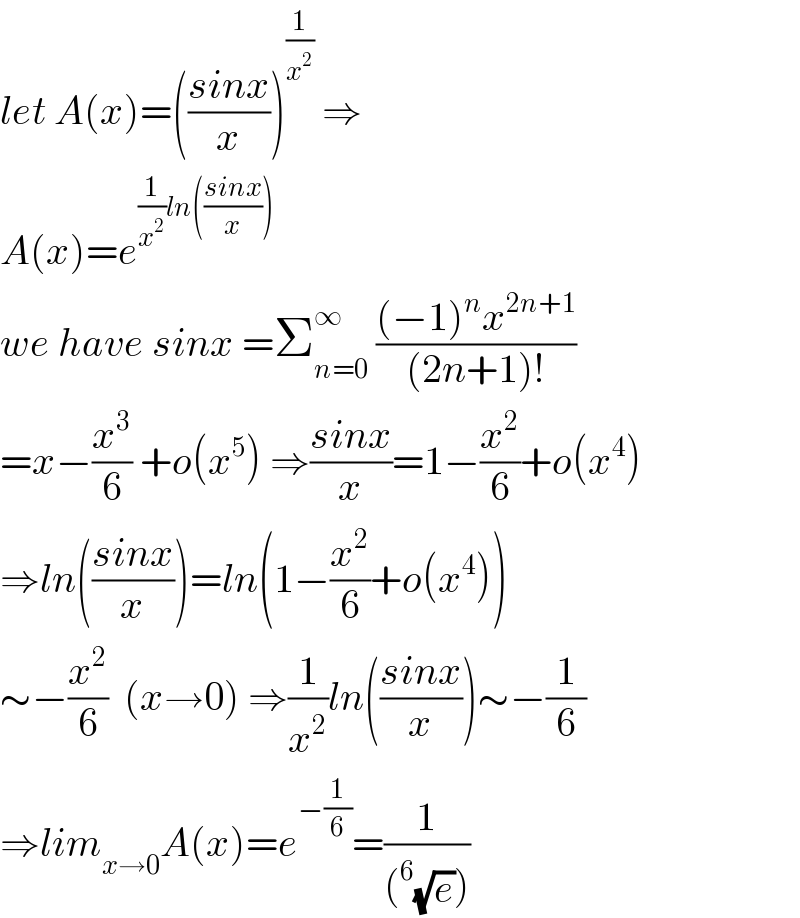Question Number 72218 by aliesam last updated on 26/Oct/19

Commented by turbo msup by abdo last updated on 26/Oct/19

$${let}\:{A}\left({x}\right)=\left(\frac{{sinx}}{{x}}\right)^{\frac{\mathrm{1}}{{x}^{\mathrm{2}} }} \:\Rightarrow \\ $$$${A}\left({x}\right)={e}^{\frac{\mathrm{1}}{{x}^{\mathrm{2}} }{ln}\left(\frac{{sinx}}{{x}}\right)} \\ $$$${we}\:{have}\:{sinx}\:=\sum_{{n}=\mathrm{0}} ^{\infty} \:\frac{\left(−\mathrm{1}\right)^{{n}} {x}^{\mathrm{2}{n}+\mathrm{1}} }{\left(\mathrm{2}{n}+\mathrm{1}\right)!} \\ $$$$={x}−\frac{{x}^{\mathrm{3}} }{\mathrm{6}}\:+{o}\left({x}^{\mathrm{5}} \right)\:\Rightarrow\frac{{sinx}}{{x}}=\mathrm{1}−\frac{{x}^{\mathrm{2}} }{\mathrm{6}}+{o}\left({x}^{\mathrm{4}} \right) \\ $$$$\Rightarrow{ln}\left(\frac{{sinx}}{{x}}\right)={ln}\left(\mathrm{1}−\frac{{x}^{\mathrm{2}} }{\mathrm{6}}+{o}\left({x}^{\mathrm{4}} \right)\right) \\ $$$$\sim−\frac{{x}^{\mathrm{2}} }{\mathrm{6}}\:\:\left({x}\rightarrow\mathrm{0}\right)\:\Rightarrow\frac{\mathrm{1}}{{x}^{\mathrm{2}} }{ln}\left(\frac{{sinx}}{{x}}\right)\sim−\frac{\mathrm{1}}{\mathrm{6}} \\ $$$$\Rightarrow{lim}_{{x}\rightarrow\mathrm{0}} {A}\left({x}\right)={e}^{−\frac{\mathrm{1}}{\mathrm{6}}} =\frac{\mathrm{1}}{\left(^{\mathrm{6}} \sqrt{{e}}\right)} \\ $$
Commented by aliesam last updated on 26/Oct/19

$${god}\:{bless}\:{you} \\ $$
Commented by mathmax by abdo last updated on 26/Oct/19

$${you}\:{are}\:{welcome}. \\ $$
